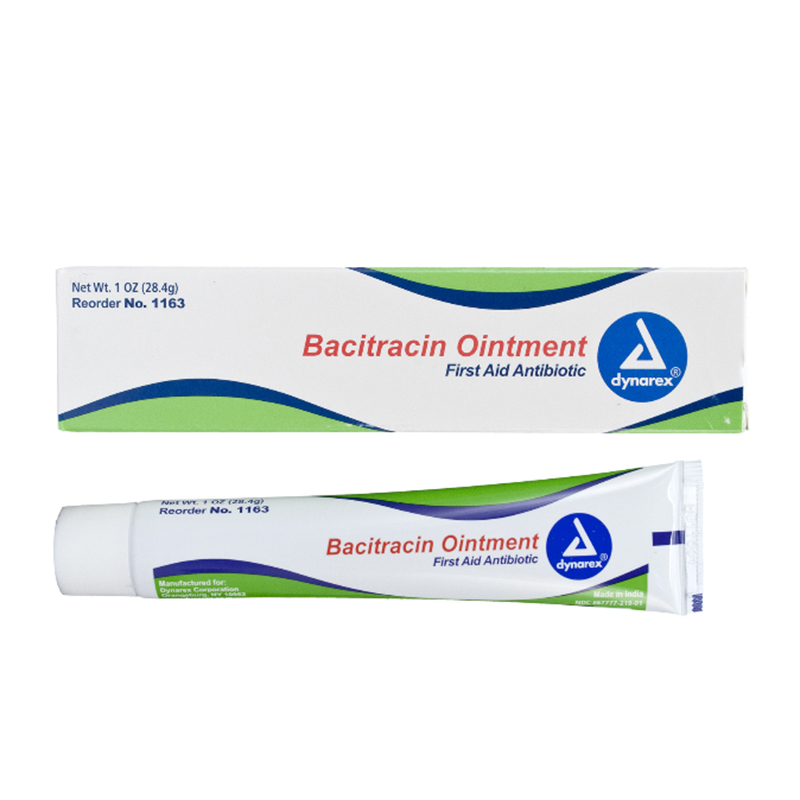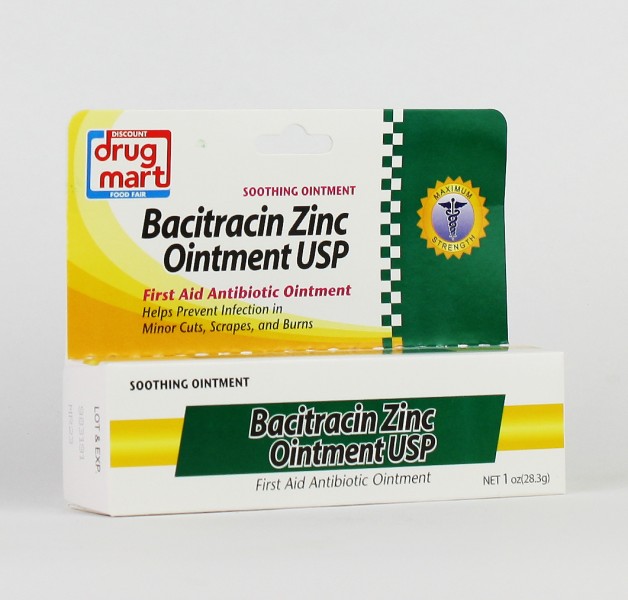Description
Bacitracin: A Versatile Antibiotic for Topical Relief
Bacitracin is a well-known and widely used antibiotic, primarily recognized for its effectiveness in treating minor skin infections. Often found in over-the-counter antiseptic ointments and creams, bacitracin offers a valuable tool for preventing and treating bacterial growth on the skin, promoting faster healing and reducing the risk of complications.
What is Bacitracin?
Bacitracin actually refers to a group of related polypeptide antibiotics produced by organisms belonging to the Bacillus licheniformis group. These antibiotics work by interfering with bacterial cell wall synthesis, ultimately preventing the bacteria from growing and multiplying. By disrupting this critical process, bacitracin effectively inhibits the growth of susceptible bacteria, making it a powerful ally in fighting skin infections.
How Does Bacitracin Work?
Specifically, bacitracin inhibits the dephosphorylation of a lipid carrier involved in cell wall synthesis. This prevents the movement of peptidoglycans, crucial building blocks of the bacterial cell wall, across the cell membrane. Without these building blocks, the bacteria cannot effectively build and repair their cell walls, leading to cell death.
Common Uses of Bacitracin:
Bacitracin is primarily used topically to treat a variety of minor skin infections, including:
- Cuts and scrapes: Applying bacitracin to minor wounds helps to prevent bacterial infection and promote faster healing.
- Burns: Superficial burns, like sunburns, can benefit from bacitracin to minimize the risk of infection and promote healing.
- Minor Skin Irritations: Bacitracin can be used on minor skin irritations to prevent secondary bacterial infections.
- Post-operative wound care: Following minor surgical procedures, bacitracin can be applied to the incision site to prevent infection.
It is often found in combination with other antibiotics, such as neomycin and polymyxin B, in popular triple antibiotic ointments. These combinations provide a broader spectrum of antibacterial activity, targeting a wider range of potential pathogens.
Benefits of Using Bacitracin:
- Effective Against Gram-Positive Bacteria: Bacitracin is particularly effective against Gram-positive bacteria, which are common culprits in skin infections.
- Promotes Faster Healing: By preventing bacterial growth, bacitracin allows the skin to heal more effectively and efficiently.
- Reduces Scarring: Minimizing infection can help to reduce the risk of scarring.
- Readily Available: Bacitracin is readily available over-the-counter, making it a convenient option for treating minor injuries.
Important Considerations and Side Effects:
While bacitracin is generally considered safe for topical use, it’s important to be aware of potential side effects and precautions:
- Allergic Reactions: Some individuals may experience allergic reactions to bacitracin. Signs of an allergic reaction can include rash, itching, swelling, or difficulty breathing. If you experience any of these symptoms, discontinue use immediately and seek medical attention.
- Avoid Prolonged Use: Prolonged use of bacitracin may increase the risk of developing resistant bacteria. Use it only as directed and for the recommended duration.
- Not for Serious Infections: Bacitracin is not intended for treating severe or deep skin infections. If your infection is not improving or is worsening, consult a doctor.
- Avoid Contact with Eyes, Mouth, and Nose: Avoid getting bacitracin in your eyes, mouth, or nose. If contact occurs, rinse thoroughly with water.
- Consult a Doctor for Certain Conditions: If you have any underlying medical conditions, such as kidney problems, or are pregnant or breastfeeding, consult a doctor before using bacitracin.
Conclusion:
Bacitracin is a valuable and readily accessible antibiotic for treating minor skin infections. Its ability to inhibit bacterial growth makes it an effective tool for promoting healing and reducing complications associated with cuts, scrapes, burns, and other minor wounds. While generally safe, it’s important to use bacitracin as directed and be aware of potential side effects and precautions. For serious infections or if you have any concerns, consult a healthcare professional for appropriate medical advice.






















Reviews
There are no reviews yet.